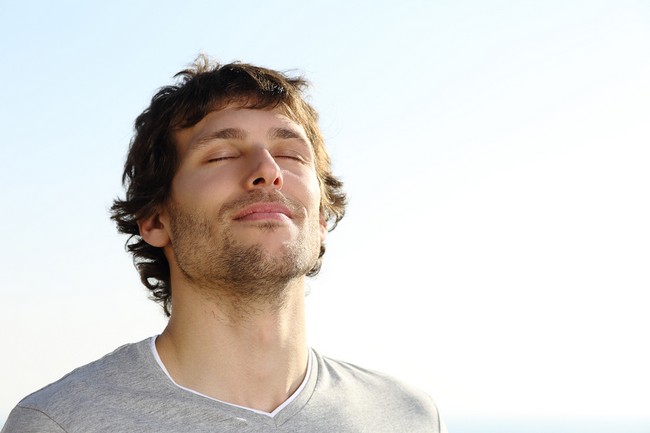- Make It Yourself Lavender Heart-Shaped Bath Bombs!
- 20 Things You Never Knew About “Down There”
- 12 Best Foods For Those Suffering From Arthritis Pain
- 12 Personal Hygiene Mistakes Almost Everyone Makes (Mom Never Told You About #4!)
- 15 Medicinal Plants And Herbs From The Cherokee People
- 12 Mind-Blowing Benefits Of Drinking Coconut Water During Pregnancy
- 12 Outstanding Winter Foods That Won’t Fatten You Up Like A Christmas Turkey
This One Thing You Do Every Day Prolongs Your Life When You Do It Right

Photo credit: bigstock
Breathing – it’s perhaps one thing you do every minute of every day and never give it a second thought until you have problems with it. Even your doctor won’t pay attention to it unless you tell him that you can’t catch your breath or if it is affecting your pH levels.
Increasing the respiration rate per minute is your body’s natural response to stress and anxiety. When our breathing increases, we increase oxygen intake while decreasing our carbon dioxide levels in preparation for an emergency situation.
When we are stressed out, the age old cliché of “just breathe” seems terribly oversimplified and out of date, but that doesn’t make it any less true. Correct and mindful breathing can actually lead to a longer life. Incorrect breathing is nothing more than a bad habit that can easily be converted into proper, rhythmic abdominal breathing. This is the body’s natural state.
Although the body has other functions that go on without conscious thought, such as digestion or blood flow, the fact is that we cannot alter those functions no matter how hard we try. Breathing, however, is something that we do have some control over. We can hold our breath, but we can’t “hold” our digestive process! Our respiration may be managed in the unconscious, but, we can take the reins at any time.
Since we are breathing at all times, the strangeness of this dual control system doesn’t usually give most of us a second thought, but perhaps we should. Since we can change our breathing, at least to some extent, we can change how breathing affects the body.
Paced respiration, sometimes called controlled breathing or deep breathing, has been a part of Eastern health practices for centuries. Regardless of what you want to call deep breathing, the function is a fuller exchange of oxygen. This means that more oxygen is entering the body, and therefore, more carbon dioxide leaves the body.
Although the basics are described in numerous ways, the mechanics of it are simple:
1. Inhaling deeply through the nose and expanding the abdomen
2. Holding the breath for a moment
3. Exhaling completely through the mouth, usually for a longer count than the inhalation.
So for example, you would inhale through the nose, extending the abdomen for a count of four, hold for a count of one, then exhale through the mouth for a count of six.
Controlled breathing stimulates the parasympathetic nervous system into life and counters the sympathetic nervous system, our natural fight or flee response to stress.
Continue to Page 2
































